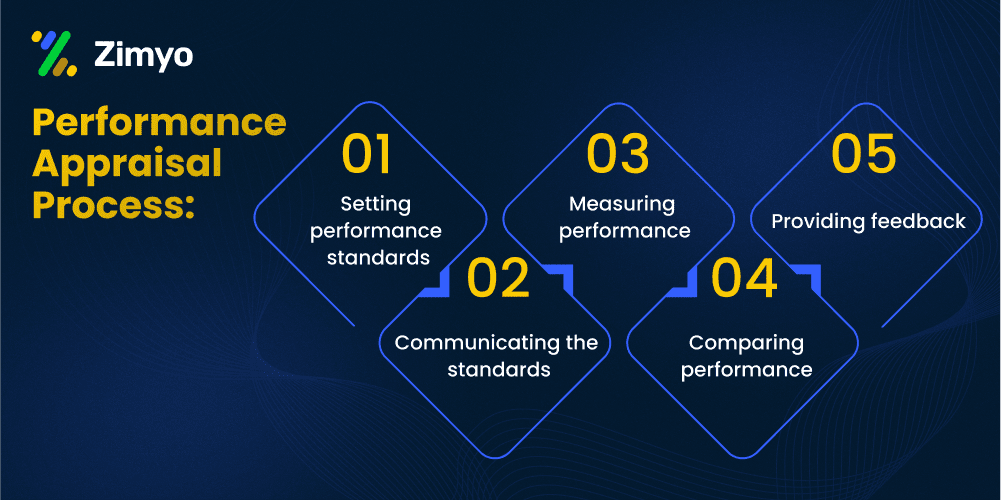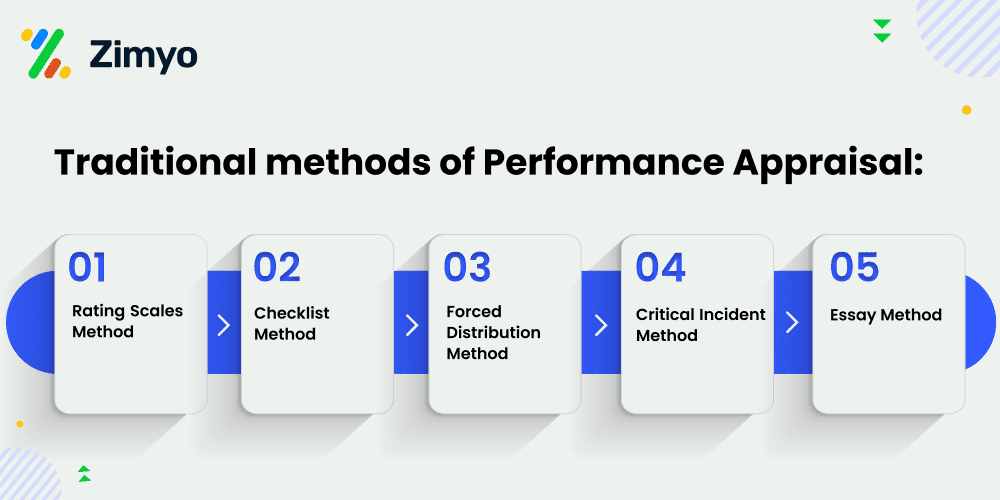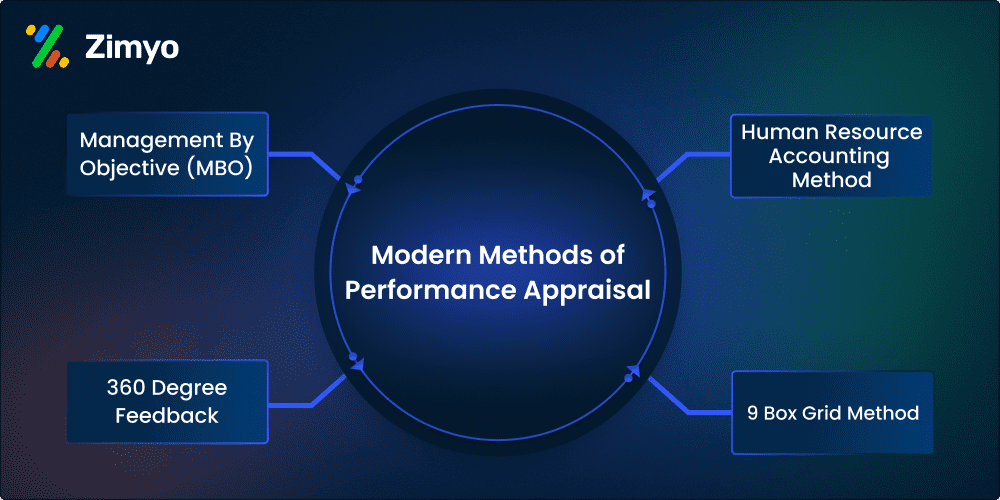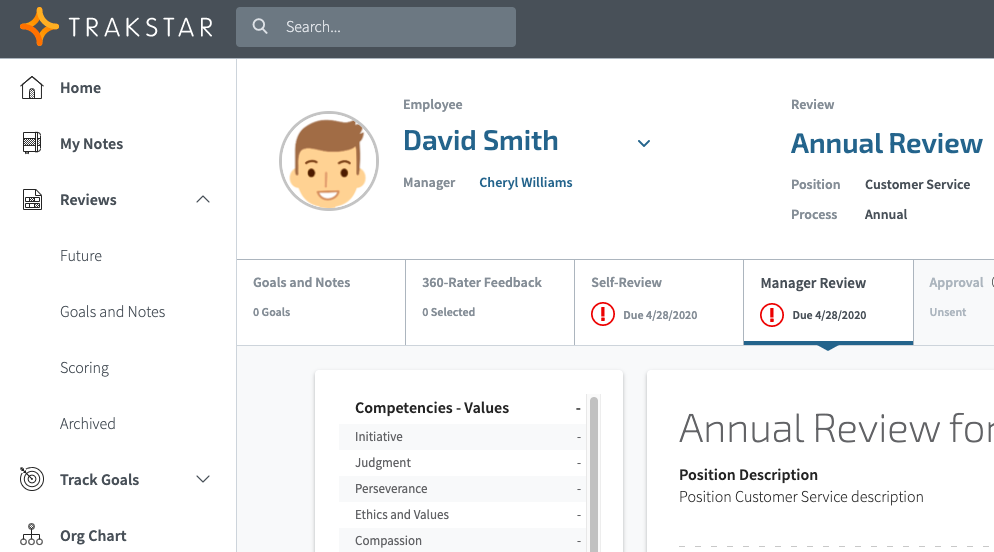

Performance evaluation is a vital activity for firms looking to assess and enhance the performance of their personnel.
The alignment of team and individual goals with overarching organizational goals, identifying employees’ areas of strength and weakness, providing feedback to staff members, and promoting careers are all made possible by an efficient performance appraisal process. This guide outlines the basics of performance evaluation, essential ideas, ideal procedures, and tactics for creating and implementing a successful approach.
This guide is invaluable for navigating the complexity of performance appraisal and realizing its full potential, whether you’re a manager, HR professional, or employee looking to grasp the performance appraisal process.
Performance appraisal is the process of evaluating an employee’s job performance based on predefined metrics. The performance appraisal may only occur once or twice a year, but evaluating an employee’s performance is continuous and can happen daily.
It may seem like a chore at first, but performance appraisals are necessary for the sustained growth of employees and, by extension, the organization.
A performance appraisal should not be a stressful ordeal. Instead, it should be used to reward and recognize an employee’s achievements throughout the year and guide them if they are not performing up to expectations. A normal employee appraisal includes all the stakeholders involved in or affected by the employee’s performance. That includes their supervisors, their coworkers, their customers, and, of course, themselves.
The performance appraisal has 3 main functions;
True to its name, a self-appraisal is where an employee is given a chance to appraise and evaluate their own performance. The self-appraisal is typically included in your annual performance evaluation.
A good and honest self-appraisal helps you to align your objectives with the companies.
In a self-appraisal, the employee will include;
The self-appraisal process is crucial for several reasons. Firstly, it gives employees a sense of ownership and responsibility. By engaging in the self-evaluation process, employees become more responsible for their conduct and feel empowered when given a chance to evaluate themselves. Motivated workers who produce superior results are beneficial for an organization’s expansion.
Self-appraisals also enhance working relationships between employers and employees by starting a lively and ongoing interaction. This process creates a two-way conversation between an employer and employee, illuminating the workforce’s overall performance, offering deeper insights, and a clearer picture of employees’ achievements and areas of weakness.
Self-appraisals also help eliminate discrepancies by comprehensively showing an employee’s strengths and weaknesses.
The employer and employee match their records to ensure that all successes and shortcomings are considered in the final performance assessment, removing the possibility of a discrepancy.
Even if the self-appraisal doesn’t result in a pay increase, it can still benefit employees. Moreover, employees learn about their strengths and limitations through self-appraisal and recognize their areas of weakness and need for development. This insight helps managers to provide the required training for enhanced career chances.
To write an effective self-appraisal, employees should start by considering their most recent self-evaluation and how management responded. If the management’s response could have been better, they should avoid the same blunders this time.
Employees should structure their self-assessments according to corporate rules and focus on accomplishments. Instead of focusing on their shortcomings, they should consider their opportunities for improvement and request additional training. The following advice can help them ace the performance evaluation:
The self-appraisal process is essential for employers and employees to comprehend the overall performance of their workforce and for employees to recognize their strengths and limitations. Employees should arrange their self-assessments per business guidelines and focus on their successes to produce an effective self-appraisal. Employees who self-evaluate feel more in control of their behavior, are held more accountable, and have better-working relationships with their employers.
There are several reasons why a performance appraisal is important for an organization.
Alignment with Organizational Objectives: Performance appraisals can aid in the alignment of employee goals with organizational objectives, ensuring that staff members are aware of their responsibilities and how their work affects the success of the business. Managers can discover areas for improvement and make the required modifications to ensure the overall success of the firm by comparing employee performance to predetermined goals.
Providing feedback and motivating employees – Employees receive constructive criticism on their work during performance reviews, which can inspire them to work more and perform better. Managers can give feedback, commend good work, and make ideas for improvement through routine performance reviews. Workers are interested in their performance and whether they are up to par.
Employee development – Performance reviews can be used to determine an employee’s strengths and flaws and to present chances for advancement. Managers can provide training, coaching, or other forms of support by identifying areas where an employee needs to improve in order to help them advance in their positions. As a result, productivity, engagement, and retention may all increase for the benefit of the employee.
Fairness and Transparency: Performance evaluations must be fair and transparent in order to retain an organization’s reputation for credibility. Performance appraisals can help with this. Managers can lower the chance of bias and guarantee that all employees are evaluated fairly by adopting objective criteria to evaluate performance.
Rewards and Recognition: Performance evaluations can be used to identify individuals who have made contributions to the organization that merit awards and recognition. Managers may boost morale and boost productivity by recognising top performers and rewarding them with incentives like bonuses, promotions, or other kinds of recognition.
A bad appraisal cycle can lead to poor performance as employees may not receive constructive feedback on their work, leading to stagnation and a lack of growth. This may result in lower productivity and a decline in overall business performance.
When deserving employees are not recognized and rewarded appropriately, they may feel undervalued and seek opportunities elsewhere. This can result in high employee turnover, which can be costly for the company regarding time and resources spent on recruitment and training.
Non-deserving employees may be promoted to higher positions, resulting in inefficiencies in business operations and decision-making. This can lead to delays, errors, and a lack of progress in achieving business objectives.
A bad appraisal cycle can be perceived by employees as biased decision-making by higher-level authorities. This can damage the company’s reputation and make attracting and retaining top talent difficult.
If employees perceive the appraisal process as unfair, they may become demotivated and less willing to work hard. This can lead to lower morale and a decline in employee engagement.
When non-deserving employees are promoted more often, it can lead to disputes and a lack of cooperation and coordination amongst employees and officers of the company. This can result in a breakdown of communication and a lack of trust between management and employees.

The process of performance appraisal can seem complicated, where in actuality it’s not. Let us tell you through our performance appraisal guide.
The first step should be to define clear and measurable metrics which can be used to measure employee performance. The standards should be communicated clearly to all employees, and it’s the managers duty to do so.
Once the standards have been established, it is important to communicate them to all employees. This will help them understand what is expected of them and how their performance will be evaluated. The standards can be modified based on feedback from employees and evaluators.
Measuring employee performance is the most challenging part of the appraisal process. It involves carefully selecting appropriate measurement techniques, monitoring performance throughout the year, and avoiding personal bias that could impact the outcome.
Actual performance is compared to the desired or standard performance. This helps identify areas where employees are excelling or where improvements are needed. Data related to employee performance is evaluated and analyzed to determine deviations from standards.
The results of the appraisal are discussed with employees on a one-to-one basis. Feedback is given in a positive and helpful manner to motivate employees to improve their performance. Make sure to convey the feedback properly, as negative feedback often results in negative reactions from employees.
The following list serves as a general guideline for creating a rating standard
Performance below acceptable standards. Immediate and strict corrective actions should be taken.
Performance below acceptable standards. However, can be improved with appropriate corrective actions.
Performance meets set standards expected of the employees positions.
Performance meets set standards expected of the employees positions.
Highest possible standard of performance. Leaves nothing to be desired.
Errors can be rectified, but when such mistakes can affect the livelihood of employees, they should be taken seriously. We have listed some common errors that managers should avoid making while conducting appraisals.
Comparing employees with one another. The manager should remember that employees are not being compared against each other, but being compared based on their performance in their respective jobs.
Preconceived notions affect decision making. A person may be biased on the basis of religion, gender, race etc. and those biases can seep into the managers appraisals.
Giving everyone an average rating irrespective of actual performance.
Managers can do this to avoid the burden of making decisions. However, doing this can demotivate high performing employees and inculcate bad behaviors in underperforming employees.
Managers may rate performance in one metric higher than the others, skewing the results of the appraisal.
If a manager sees potential in a particular employee, they may devote more time to them, resulting in the employee performing better. This in turn will of course result in a better appraisal.However, in doing so, they ignore other employees who may also need help, resulting in those employees struggling to complete their work; which will result in a lower appraisal.
Primacy Bias is the phenomenon which states that you remember the first items in a list better than the middle ones. Recency Bias is when you remember more recent information better than older information. The manager may let first impressions color the rest of their interactions with an employee, thus resulting in a skewed appraisal.
This is when a manager rates all their employees highly in an effort to make themselves look better.
A manager may sometimes decide that an employee has reached the peak of their performance, and stops challenging the employee with more responsibilities and opportunities.
Performance appraisal methods can be largely divided into 2 categories.
Traditional methods of Performance Appraisal and Modern methods of Performance Appraisal.

A rating scale evaluates an employee’s performance against specific parameters. The scale usually ranges from 1 to 10, with low scores indicating negative feedback and high scores indicating positive feedback.
A checklist is prepared with descriptive statements about the employee’s behavior. The rater selects one of two options (Yes/No or True/False) that he thinks correctly describes the employee’s conduct.
This method distributes employees into different performance categories based on a bell-shaped curve based on their performance. The curve will then differentiate them into low performers, average performers, and high performers. This method was mostly used in big companies due to the large workforce they employ.
This method evaluates an employee’s performance against a list of predetermined critical behaviors. For example, if an employee is interacting with a customer, then the employee will be judged on whether they were polite or rude, and so forth.
The rater describes the employee’s behavior and performance. The report includes all relevant information like employee’s attitude, job knowledge, current performance, and growth potential.

This approach involves management and staff working together to establish, plan, organize, and communicate goals. The SMART technique (Specific, Measurable, Achievable, Realistic & Time-sensitive) is used to validate the objectives, typically for a specified appraisal period.
Managers and employees regularly communicate to review the feasibility of accomplishing stated goals and the progress made after clearly defining them. Success is recognized with appraisals like pay increases or promotions. At the same time, unsuccessful candidates are reevaluated for additional training—these indicators of improvement aid in evaluating an employee’s contributions after the review period.
As a result of this constant communication, success is able to be measured using concrete goals. However, as a result, interpersonal skills are not considered in the overall evaluation.
360-degree feedback, largely regarded as a multifaceted performance evaluation technique, is becoming extremely popular lately. The approach is centered on gathering input from all parties the employee interacts with, including management, clients, peers, etc.
There is little risk of a manager’s prejudice influencing the appraisal when evidence is gathered from different sources. Also, it provides a clearer picture of the employee’s work competence.
Companies are aware that in order to keep motivated and engaged, employees look for neutral, objective feedback on their performance. The employee is encouraged to enhance their performance in light of the review because it is perceived as a fair evaluation.
While it results in a more comprehensive feedback, certain stakeholders like customers may not know how to give constructive feedback, thus skewing the results.
The Human Resource Accounting Method examines an employee’s performance based on the monetary advantages they provide to the firm.
To determine how an employee’s contributions stack up against the costs incurred by the company, it considers elements including the standard of their job, administrative expenses, and interpersonal abilities. This approach effectively determines an employee’s worth by calculating both the expense to the business and the value they provide.
The cost and value an employee provides, which can differ for each evaluator, are not defined by any fixed standards.
Despite this drawback, firms can still evaluate employee performance and determine how much they contribute to the overall profitability of the business using the Human Resource Accounting Method.
The nine-box grid system classifies employees according to their performance and potential, making it more straightforward for employers to determine which workers require support, which are worth keeping, and which ones might not.
By identifying high-performing workers and those with leadership potential, this methodology aids in succession planning. Additionally, the application aids managers in spotting skill shortages and encouraging staff growth, resulting in genuine employee reviews and insightful succession planning discussions.
By identifying potential leaders, prioritizing development, and building a competent talent pool for future leadership positions, the 9-box grid encourages retention.
A performance appraisal requires equal participation from the employee and the manager. As the one actually conducting the appraisal, the manager has the responsibility to accurately measure the performance and provide feedback to the employee.
We have listed some additional responsibilities that the manager must pursue before the performance appraisal.
A performance appraisal requires equal participation from the employee and the manager. As the one actually conducting the appraisal, the manager has the responsibility to accurately measure the performance and provide feedback to the employee.
We have listed some additional responsibilities that the manager must pursue before the performance appraisal.
Managers are in charge of staff training and development, which includes finding high-potential workers and giving them chances to advance. Also, managers help their staff members grow in their abilities and skills and ensure they have the tools to do their jobs well.
Managers must regularly give workers constructive criticism. This criticism also involves continuing assistance, advice, and direction on performance matters. Also, managers are in charge of dealing with employee performance difficulties and determining whether an individual needs skill development or corrective action to return to an acceptable performance level.
The performance evaluation process’s capstone activity is the annual performance appraisal. Managers’ leadership training helps them comprehend the value of performance management and evaluation. They are in charge of organizing and carrying out a yearly performance evaluation that ranks personnel in accordance with the goals and expectations of the business.
A manager’s responsibilities include observing and evaluating employee performance during the evaluation phase. This entails keeping track of employee performance, identifying development opportunities, and determining whether employees are fulfilling their duties and expectations as part of their work.
Managers are essential in helping their staff members develop plans. Setting SMART (Specific, Measurable, Achievable, Relevant, and Time-Bound) goals that complement the organization’s overarching objectives is part of this. Together, the manager and employee establish these objectives, and the management offers feedback and support as the employee works towards achieving them.
Irrespective of whether the review was positive or negative, the employee has a few decisions to make after the review process ends. We have outlined a few steps that employees can take to capitalize on the review they received.
• First off, feel free to ask your manager for clarification on any topics that weren’t apparent to you or raised any concerns. Good managers will be prepared to discuss any ambiguities in the review with you again. If you encounter resistance, it may be time to re-evaluate your work environment and consider your options.
• Seek out feedback throughout the year. Consider requesting informal feedback more frequently if the review contains any unexpected findings, either positive or negative. This can ensure that you stay on course and live up to expectations. A good time to solicit feedback is at the start or conclusion of a project, midway through the year, or after receiving unfavorable comments.
• Take a deep dive into your development areas. There is always space for growth because no one is flawless. Find areas for growth and seek out external learning or training opportunities to enhance your skills.
• Start putting together your annual evaluation for next year by maintaining a running to-do list. This can contain tasks you’ve finished, objectives you’ve attained, and any other achievements. Keeping detailed notes will make it easier to recall your accomplishments when it comes time for the next review.
• Finally, select goals that match your measurements of success for the upcoming year. Create specific, attainable goals using your review’s criticism and improvement areas. These objectives should support your ongoing professional development and align with your career aspirations.
Zimyo is a leading HRMS, payroll, and performance management software provider company in the market. Known for its best services to clients, you can trust Zimyo to solve all your performance appraisal needs without creating any havoc or chaos.
It is considered one of the best software available in India to carry out the performance appraisal operations of a company in a processed and effective manner.
It’s very important to recognize the employees of a company for their hard work to maintain the same amount of enthusiasm in them throughout the year in order to achieve the organizational goals. Zimyo provides software inbuilt with various features such as 9-Box Matrix, Bell Curve Appraisal, Normalization Ratings, Potential, and Competency Ratings. The software adapts the technique of 360-degree feedback, which is known to be highly accurate among all other techniques of performance appraisal.
Along with performance appraisal, Zimyo also deals with software related to HRMS, Applicant Tracking Software, payroll management, time and attendance tracking, employee benefits, etc, in its services. The company is marking its presence in the market with an increment in its position day by day.
The software of Zimyo, with all these outstanding features, is also pocket friendly, starting at just ₹30 per user per month, and can be molded according to your organizational needs with the necessary increment in the price.

Trackstar is a cloud-based performance appraisal solution, using one of the most effective techniques, i.e., 360 degrees, for measuring the performance of employees. This software is one of the best choices for your organization. It provides numerous features and is unique, with an easy-handling interface.
Using this software helps in saving a lot of time in measuring performance appraisal for every employee, allowing managers to put their focus on other areas of importance. It is made for HR professionals as well as for managers to deal with competencies and objectives that align appropriate candidates with the proper role, which would help to meet the goals of your company.
This software is inbuilt with various modules such as 360-degree feedback, objective setting, succession planning, and performance reviews that are needed to have a hassle-free and highly accurate performance appraisal along with increasing the efficiency of the company’s workforce.
The software also has an automatic reminder system for the employees to know how much time they are left with to fulfill an objective.

This cloud-based performance software is trusted by businesses worldwide.
The techniques used by this software are the ones considered to be highly accurate and reliable, which are 360-degree feedback, real-time feedback, customer experience evaluation, and project performance evaluation.
By choosing this software, it becomes easier to communicate job expectations to your employees. The software is easy to use even on mobile phones, making it highly accessible. Needed reports and analyses are done before reaching any conclusion, and employees’ productivity is evaluated accordingly.
The reports are sent to employees to clarify where they lack and to pursue necessary changes for the future. This software not only eases the work of managers but provides a reality check to the employees and helps them pave a path for the future accordingly.
In summary, Zimyo’s software is ideal for businesses seeking a complete and affordable performance management solution. It offers a hassle-free and very accurate performance appraisal, enhancing the productivity of the company’s workers thanks to its many features, use of highly precise procedures, and special performance and payroll integration system.
In conclusion, performance evaluations are a crucial component of a system for performance management in a company. They give managers a formal opportunity to assess employee performance, give feedback, pinpoint areas for development, and set objectives for the future.
An effective performance appraisal may be a potent tool for motivating and developing employees as well as making sure that organizational objectives are being accomplished. Yet, it’s crucial to remember that performance evaluations take careful preparation, implementation, and follow-up because they are not a one-size-fits-all solution.
Managers can conduct fair and efficient performance reviews that are advantageous to both the company and its employees by adhering to the guidelines provided in this guide.